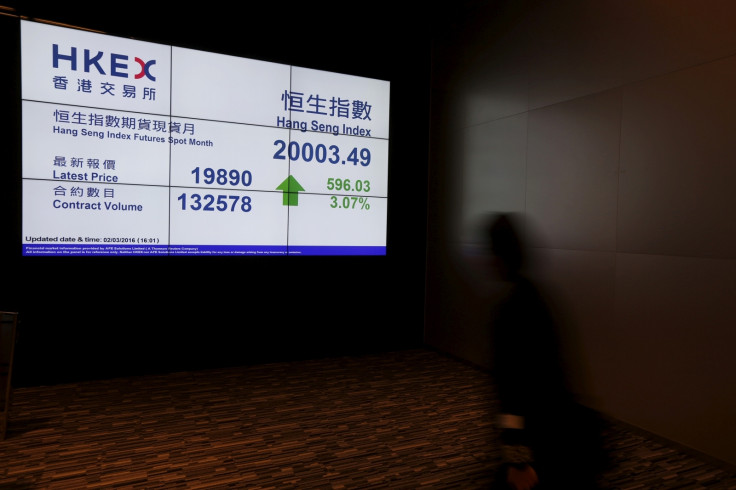Hong Kong's Hang Seng breaks 30,000 barrier for the first time since 2007
Hang Seng index has gained over 30% in 2017 alone and analysts expect it could reach 32,000 by the end of next year.

Hong Kong's Hang Seng share index broke through the 30,000 threshold for the first time in a decade on Wednesday (22 November).
The index, which has climbed by over a third in 2017 so far, closed at 30,003.49 and moved closer to its all-time high of 31,638.22, which it reached just before the financial crisis, before plunging to as low as 12,000.
There is little to suggest the Hang Seng might relinquish its gains anytime soon and analysts at Goldman Sachs expect the index to reach 32,000 by the end of next year.
"New economy companies like Tencent as well as mainland banks and insurers are major contributors to this round of the rally, and the Hang Seng Index crossing above 30,000 points means that funds remain bullish on China and Chinese firms," Linus Yip, analyst at First Shanghai Securities was quoted as saying by Bloomberg.
"Allocations in such firms seem rational and will continue to push the index higher, despite some small hiccups on the way up."
Strong economic growth in China and low interest rates across the region have been among the main drivers for markets across Asia, which have also moved close to record highs.
In Japan, the Nikkei index recently hit its highest level since 1996, while South Korea's Kospi is also currently trading near all-time highs and Australia's ASX 200 index recently broke through the 6,000 threshold for the first time in nine years.
"Bonds are unattractive because of America's decision to gradually normalise interest rates," said David Kuo, chief executive of the Motley Fool Singapore.
"Property prices are still high, and cash is deeply unappealing. Of the four main asset classes, the stock market still looks relatively inexpensive.
"The Hong Kong stock market has outperformed the Japanese stock market and the Singapore market by almost a factor of two.
That is a remarkable achievement given that the Hong Kong economy has not exactly performed significantly better than other countries in the region."



















